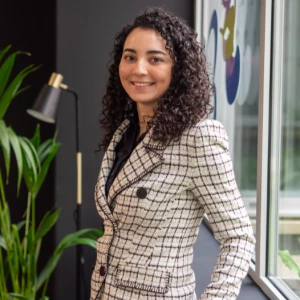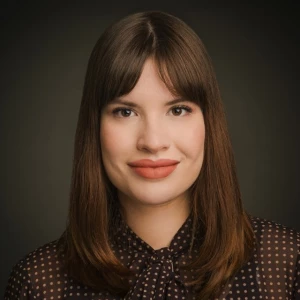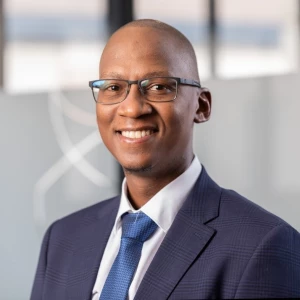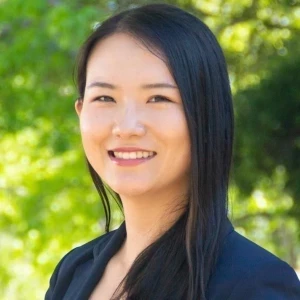How long should we be expected to take to develop our framework? And once we manage to do so, how long should we aim to finish talking about our framework? And how can we balance between getting through it concisely but also being specific in each of our buckets? And should we always end each framework with an initial hypothesis? Thank you!
Framework Case Interviews


Hi there,
The structure and timing of your framework are critical in case interviews. Here’s a general guideline:
1. Developing Your Framework
Aim to spend about 1-2 minutes developing your framework. Use this time to organize your thoughts, identify the key drivers, and ensure you cover all relevant aspects of the case. If you need a bit more time, it’s okay to ask for it, but try to keep it within 2 minutes to maintain momentum.
2. Presenting Your Framework
Once you start presenting, aim for 2-4 minutes depending on the complexity of the case. You want to be structured yet concise, clearly articulating each “bucket” without getting too granular. Focus on key insights rather than listing everything you can think of. For example, instead of saying, “We should look at customer segments,” try something more specific, like, “We should assess customer segments based on profitability, growth potential, and loyalty, as these will likely drive our revenue optimization strategy.”
3. Balancing Detail and Brevity
• Lead with Structure: Clearly outline your main buckets upfront (e.g., market, competition, internal capabilities).
• Deep Dive Smartly: Provide 1-2 bullet points per bucket to show depth, but avoid excessive detail.
• Connect to the Case Prompt: Tailor your points to the specific business challenge (e.g., revenue growth vs. cost cutting).
4. Ending with an Initial Hypothesis
• It’s not always required to end with an initial hypothesis, but it can be a strong move if you have a clear, data-driven direction based on the prompt.
• If you’re less certain, you can instead summarize the key areas of exploration or potential drivers without locking yourself into a rigid hypothesis.
Example Transition:
“Based on this structure, my initial thinking is that the most likely path to growth will depend on expanding high-margin customer segments while optimizing operational efficiency, but I’ll refine this as we gather more data.”
5. Practice and Flexibility
Finally, practice is essential. Over time, you’ll find the balance between structured thinking and adaptability, which is key in live interviews.
Happy to help you with your prep - feel free to reach out.
Best,
Evelina

Great set of questions, I struggled with this myself when I was preping for interviews, as there are no clear rules. Here are my answers based on all the research I have done at the time :
- How long to develop your framework?
3 minutes max. Ask: “Can I take a moment to structure my thoughts?” I wouldn't take less then 1-2 minutes, because that reduces the quality of your structure massively - How long to explain your framework?
Around 2 minutes as well. Be concise: 3–5 buckets, each with sub-points and a short rationale (1–2 lines). Important to have the rationale part to explain why you chose that bucket specifically, because that's what tells the interviewer that you're not just reciting an already pre-made structure - How to balance clarity and specificity?
As mentioned above, focus on why each bucket matters. You don’t need deep details yet, just show that each area is relevant and thoughtful. Save the deep dive for when you explore the case. - Should you always end with a hypothesis?
Yes, ideally. A simple, logic-based hypothesis shows direction and confidence. Even if it's wrong, it helps structure the case moving forward.

Hey there
Great questions! Here's a quick guide how I teach it to my coachees:
- Time to develop: Aim for 30–60 seconds of thinking time after the case prompt. Use this to jot down your framework clearly.
- Time to explain: Try to explain your framework in 1.5–2 minutes, keeping it structured and confident.
- Balance: Be concise by summarizing each bucket in 1–2 sentences, but include 1–2 concrete examples or questions per bucket to show depth.
- Initial hypothesis: It's a plus, not a must. If the case is structured enough and you feel confident, do share one—it shows proactive thinking.
Happy to work on structuring this together in a coaching if you'd like!
Best,
Alessa

Hi there!
There is no 'universal truth' to these questions, so prepre to be confused by the different answers you're likely to come across.
Also, also prioritise quality over speed. Meaning, even if you feel you've already taken a lot of time, it's still overall better to take more time in the hope of improving what you believe to be a bad structure, rather than to go aheda with the bad structure.
The case interview is not a speed interview, it's rather a depth and insight interview. So you'll always be forgiven if you're taking longer, but not forgiven if you're answers are not good.
Now, to the actual numbers.
It's perfectly fine to take 1-2 minutes of thinking time.
I know interviewers who give the prompt and then go prepare themselves a coffee. I know others as well who ask the candidate to treat it as a casual conversation and not formalise themselves by taking time. Go with the flow. You'll never have one approach that makes everybody happy.
How long should the framework presentation be?
Depends on the firm. But for MBBs, I typically recommend 4-5 minutes. Needless to say, this also depends on the scope of the question.
You might also find this useful:
Best,
Cristian

Hi there!
- How long should we be expected to take to develop our framework? 1 to 3min depending on the complexity of the case. When training, aim for quality not speed until you get to a good level. A interviewer may understand if you need more time, but will not let a bad structure pass.
- And once we manage to do so, how long should we aim to finish talking about our framework? That depends on the framework. Ideally you will explain you have X buckets: a, b and c. Then you will explain what you expect to analyze in each one of them, having a rational for each one to be explained in an objective way.
- And how can we balance between getting through it concisely but also being specific in each of our buckets?
Deep dive on some of the points when you have specifics to bring about. E.g.:” I would like to assess how likely are customers to buy this digital product, as I assume this 50-60 yo segment is more conservative and not exactly tech savvy.” - And should we always end each framework with an initial hypothesis?
Yes, a hypothesis on where to start based on a rational that should be explained.
A coaching session may be useful for you considering your questions. Happy to support you with a step-by-step session where I will teach you exactly how to tackle each part of the case, from the very first moment on how to structure your notes, to the final recommendation. If you would like to learn more, feel free to DM me. :)
Best,
Mari

Time is not as important as you think
The rule is simple: finish the full case in 30–40 minutes. So manage your time end to end. But remember—this varies by firm and interview style.
More importantly, don’t rush. Put the quality of your structure and the clarity of your communication above everything. Those two are what land offers—not whether you spent 60 or 90 seconds more outlining your framework.
Best,
Alberto
—
Explore my latest case inspired by a real MBB interview: FastFashion - Customer Loyalty













